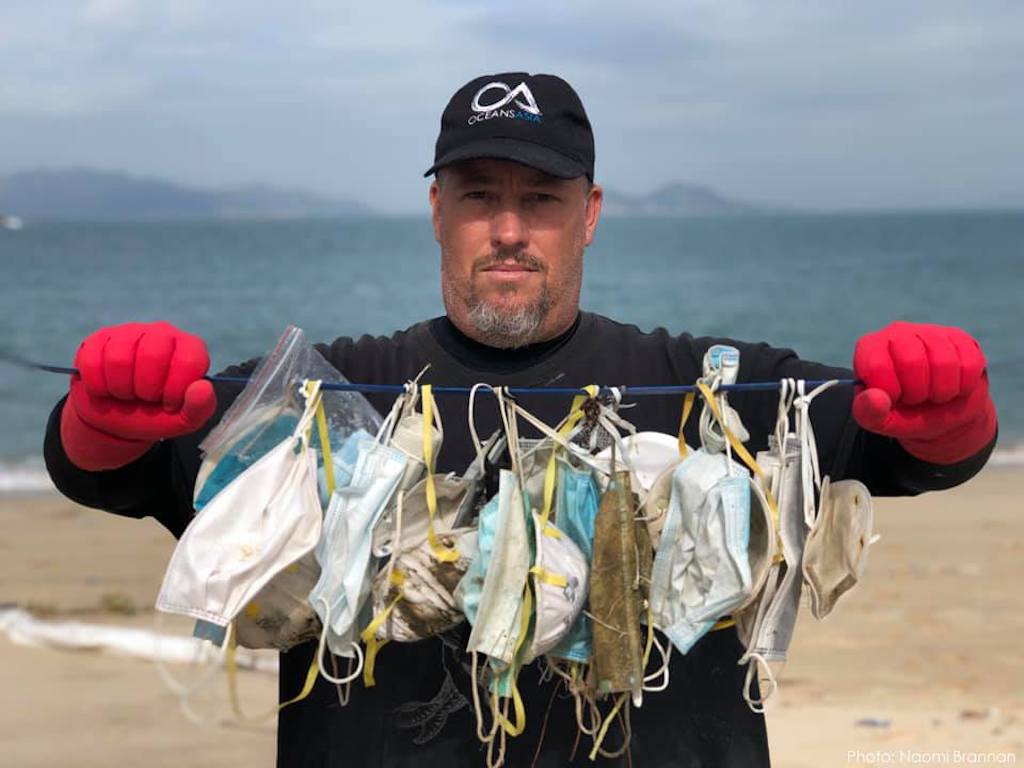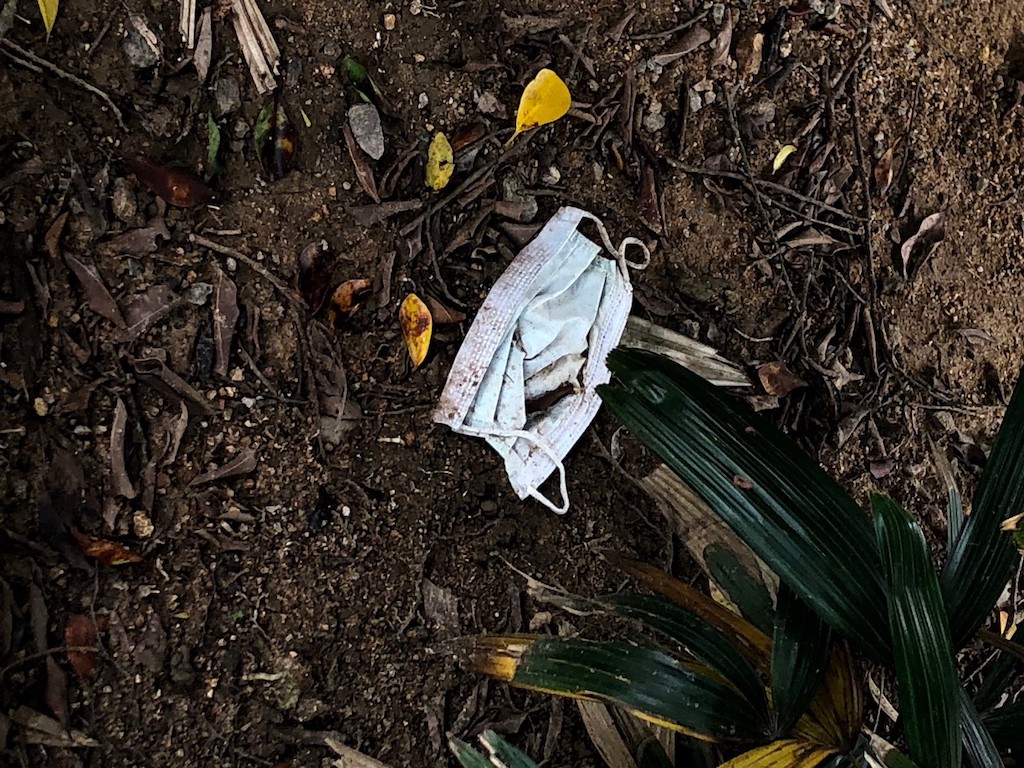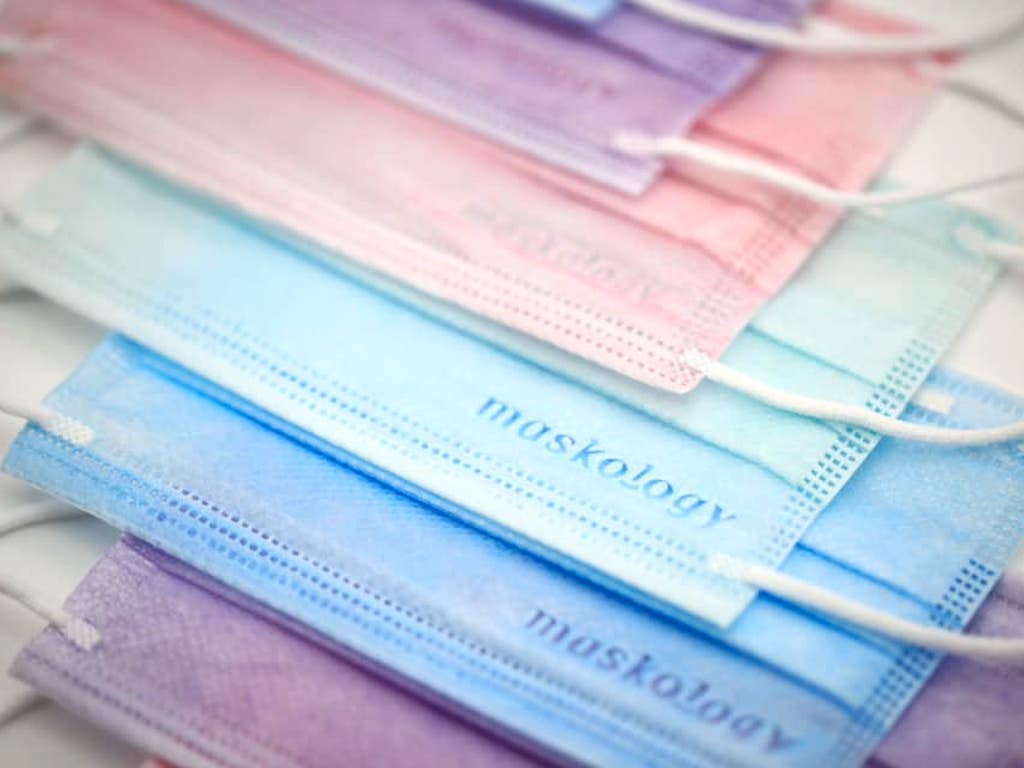5 Mins Read
Hong Kong-based independent face mask brand Maskology has announced a new partnership with environmental nonprofit A Plastic Ocean Foundation to begin developing biodegradable disposable face masks. While anti-plastic campaigners have long called for a switch to reusable options, high-risk populations and personal preferences may still be a barrier to adopting more sustainable face coverings. By offering the public a biodegradable single-use option, the collaboration hopes to be able to tackle the burden the pandemic has had on the world’s plastic waste crisis.
In a bid to curb the astronomical plastic waste associated with disposable face masks over the past year of the coronavirus pandemic, Maskology and A Plastic Ocean Foundation have teamed up to develop eco-friendly biodegradable face masks, the company announced on Tuesday (February 23).
So far, current figures estimate that 1.56 billion face coverings have already entered the ocean in 2020 alone, wreaking havoc on marine ecosystems and contributing to harmful microplastics pollution entering back into our food chain.
The project, called the “For The Planet Series”, will see Maskology launch several brand new editions of masks over the course of 2021. In the first phase of the collaboration, slated to begin in March, the brand will slash 80% of plastic materials used and remove 100% of the paper used in its non-essential packaging, as well as inform the public on proper disposal and recycling of face masks on its on-pack labels.

Later on, Maskology aims to increase the use of biodegradable materials in its face masks to two-thirds of the total fabrics used. By the third phase, the company says all fabrics in its eco-friendly mask series will be made from biodegradable fabrics, and will seek to replace unsustainable materials in the rest of its product lines.
As part of the partnership with A Plastic Ocean Foundation, the charity behind the award-winning 2016 documentary A Plastic Ocean directed by Craig Leeson, Maskology will be redirecting a portion of the sales from the new project to support the organisation’s clean up initiatives on beaches and hiking trails in Hong Kong.
Ultimately, the Hong Kong mask maker says that it hopes the project will drive a new “sustainable mask manufacturing ecosystem” in Hong Kong, especially as the pandemic continues to linger on, and experts predicting that mask-wearing will continue to be the norm in the months to come.
The development of sustainable versions of single-use masks is particularly important for high-risk groups such as the elderly or those who are immunocompromised, or those who for personal preferences have opted for disposable face coverings to ensure the safest possible protection against the spread of Covid-19.

But environmental experts still suggest that the public should opt for reusable face coverings whenever possible, as the fastest and most effective measure to slash our plastic footprint.
Now there are many companies making reusable masks and the government is also handing reusable masks out – it is possible to now phase out single-use ones for the general population, and many people are beginning to make the gradual switch.
Gary Stokes, Founder & Director, OceansAsia
Gary Stokes, founder and director of Hong Kong NGO OceansAsia, the organisation that made headlines documenting the 100-metre-long beach on Soko Islands scattered with disposable face masks in March 2020, told Green Queen Media in a previous interview that now that we’re living with the coronavirus pandemic, there needs to be a mass shift where possible to non-disposable coverings.
“At the beginning, there had been a panic. Now there are many companies making reusable masks and the government is also handing reusable masks out – it is possible to now phase out single-use ones for the general population, and many people are beginning to make the gradual switch,” said Stokes.
It’s a call that Hong Kong secondary school student Gaurika Pant echoed in her research, which estimated at least 35.6 million disposable face masks could be saved every single week in Hong Kong if people made the switch to reusables.

On a daily basis, people still use a lot of single-use plastics, and we need to find ways to encourage reusable items.
Gaurika Pant
Scientists have reiterated that reusable containers, cups and cutlery are safe to use during the Covid-19 pandemic, as long as they are properly washed and sanitised before and after use.
But both Stokes and Pant warn that the problem isn’t just with face masks, and that anti-plastic behavioural shifts must be made in all aspects of life, from the disposable cutlery offered in takeaways to single-use plastic bottles and straws.
“On a daily basis, people still use a lot of single-use plastics, and we need to find ways to encourage reusable items,” Pant told Green Queen Media.
“Let’s not forget the bigger story. Masks are just one of the many items we’re leaving behind to pollute the environment, but it’s just very relevant and current right now. The masks should serve as a massive wake up call for a bigger step up in our anti-plastic efforts across the board,” said Stokes.
Lead image courtesy of Maskology.




